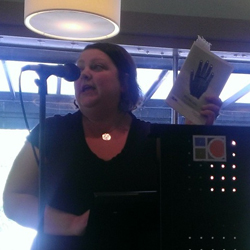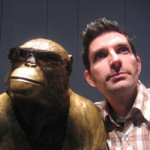Meeah Williams
When Philip Roth announced his retirement from writing in 2012 at the age of eighty, many people expressed surprise, even disbelief. How could a writer stop writing? Isn’t writing a calling, like the priesthood? Isn’t writing something more than a profession? Can a writer stop writing any more than the rain can stop raining?
Roth’s retirement got me thinking. Then, shortly after his announcement, Alice Munro announced her retirement from writing, too. As a writer myself, I considered that maybe they were both on to something.
I’m not eighty and I haven’t achieved the phenomenal success that either Roth or Munro achieved so my retirement might seem more than a little premature, not to mention un-noteworthy, except to myself. I fell short of winning the Pulitzer Prize. Way short, as it happens. The National Book Award somehow eluded me. The Nobel Prize…well, even Roth retired before winning that. The fact is, I never rose higher than publishing a handful of backlist genre novels and a dozen or so short stories in obscure literary journals. But then again, not everyone can be a CEO no matter how hard they labor or how high their aspirations; the majority of writers are salary men (and women), middle-management types and plain old office workers. And, typically, they retire earlier than the corporate superstars.
So why not take an early retirement? It’s pitiful how I keep laboring on, having reached my limit, pounding my head on the ceiling of whatever potential I might have had. I remind myself of those poor souls who keep at a job long after retirement age because they fear the sense of obsoleteness and existential pointlessness that awaits them if they were to ever stop. Because they fear they will have no reason to live; that they will die without an office to go to, a report to read, a conference table to sit at. Why can’t they find an interest in life that absorbs them other than work? Why can’t I?
Sure, writing is supposed to be that interest—and I suppose it can be, for others, for mere amateurs. But for me, it’s always been more. I thought it was a calling, but now I begin to wonder if it was really a profession, after all. A way to achieve success and fame, reward and standing. I’m beginning to suspect that I’m no different than the ambitious company man with his briefcase of Powerpoint presentations.
Isn’t it time–long past time, in fact,–for me to accept retirement gracefully? Isn’t it time for me to acknowledge that my career, even if it wasn’t all I’d hoped it would be, is over? I’d done my best now it’s time to move on. Shouldn’t I find a nice hobby, like cross-stitch or gardening? Maybe I can take up watercolors? Isn’t there an adult education class in something I can take to fill my time? Didn’t I always want to learn the fine art of French cooking? An eight-week course in short story writing…whoa, not for me! Leave that to the retired stockbroker who never had time to write. Perhaps, I should take that business administration course that I never had time to take? Didn’t I always want to be an accountant? No? Then what else did I want to be but a writer?
I’m afraid for my post-writer future. I’m afraid I’ll end wandering from coffee-shop to coffee-shop, a sad, disheveled, disoriented figure with my battered laptop and a knapsack stuffed with rough drafts and rejection slips. I worry that I’ll end up that eccentric lady at the table by the window at Starbucks drawing sympathetic stares. That I’ll be nursing silos of coffee, scribbling away incessantly with no story to tell, like those men who dress in a suit and tie every morning, grab their briefcase, go down to the train station…but have no office to go to anymore. I can see my husband shaking his head sadly as he watches me head off to my writing nook every morning after breakfast. Why can’t I just stop?
This is not a calling, it’s a sickness, a compulsion, an obsession. If I don’t write, I’m worthless. That’s what it comes down to, doesn’t it? That’s my deepest conviction. It can’t be true, can it? No more than it’s true for anyone else with a job. Writers aren’t really in a special class of their own, are they? They can retire, too. They should retire. No one is exclusively what they do. Writers don’t disappear, lose all value and purpose if they stop writing. A policeman can retire. A doctor can retire. Even a priest can retire—and they do. The jobs they have are a lot more important, a great deal more essential, than what the average writer does.
There’s a life after every job. Surely there’s a life after writing. I just can’t imagine what in the world it is. What tragic irony! My job depended on my imagination and here my imagination utterly fails me! In fact, I can’t imagine that Roth or Munro have stopped writing either. That they don’t take out their pens when no one is looking and start filling a page with words. That they don’t let their fingers play over a keyboard from time to time. Just for the joy of it. Just to see what happens. That, paradoxically, they may have rediscovered why they started writing in the first place. That it really was never a profession. That it was play, sheer joy, a participation in life that only begins when we stop trying to make it a living.
If I can only hold on to that thought, and hope for nothing more, one of these days I may be able to finally retire, too.
 Meeah Williams is a writer and graphic artist. Her work has appeared most recently in The Milo Review, Per Contra, Vagabond City and Dark Matters, among others. She lives in Brooklyn, NY.
Meeah Williams is a writer and graphic artist. Her work has appeared most recently in The Milo Review, Per Contra, Vagabond City and Dark Matters, among others. She lives in Brooklyn, NY.









